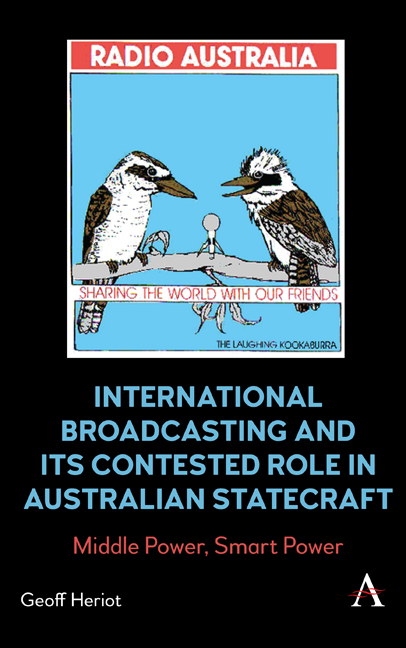 International Broadcasting and Its Contested Role in Australian Statecraft
International Broadcasting and Its Contested Role in Australian Statecraft Book contents
- Frontmatter
- Dedication
- Contents
- List of Figures
- Foreword
- Acknowledgements
- Chapter One Introduction
- Chapter Two Media and the Contest of Ideas
- Chapter Three International Broadcasting and Its Discursive Properties
- Chapter Four Mobilising ‘Softer’ Power in a Hard World
- Chapter Five Australia’s ABC: State Interests, National Evolution
- Chapter Six Purpose, Performance and Evaluation
- Chapter Seven Modernising the ABC
- Chapter Eight Policy, Priorities and Qualified Independence
- Chapter Nine Engaging with Intercultural Audiences
- Chapter Ten Indonesia, the Crucible
- Chapter Eleven Strategic Contingency and War
- Chapter Twelve Looking to the New Disorder
- Index
Chapter Seven - Modernising the ABC
Published online by Cambridge University Press: 15 November 2023
- Frontmatter
- Dedication
- Contents
- List of Figures
- Foreword
- Acknowledgements
- Chapter One Introduction
- Chapter Two Media and the Contest of Ideas
- Chapter Three International Broadcasting and Its Discursive Properties
- Chapter Four Mobilising ‘Softer’ Power in a Hard World
- Chapter Five Australia’s ABC: State Interests, National Evolution
- Chapter Six Purpose, Performance and Evaluation
- Chapter Seven Modernising the ABC
- Chapter Eight Policy, Priorities and Qualified Independence
- Chapter Nine Engaging with Intercultural Audiences
- Chapter Ten Indonesia, the Crucible
- Chapter Eleven Strategic Contingency and War
- Chapter Twelve Looking to the New Disorder
- Index
Summary
The narrative of this book moves from the conceptual to the messy reality of an operational international broadcaster dealing with multiple external and internal variables that affect its functionality and performance. The analytic framework developed in Chapter 6 is used to examine the ABC/Radio Australia’s character, purposive deployment and performance. The analysis is structured as a political history in five chapters followed by one of conclusions, which considers its relevance to present circumstances. It concentrates on the two decades to 1990 – years of regional conflict, centred on the conduct of Indonesia, and intense critical scrutiny of the international broadcaster’s performance in service of foreign policy. Promulgation of the Australian Broadcasting Corporation Act in 1983 provided a before-and-after baseline from which to re-consider the ABC’s international broadcasting mandate.
I take as a given that the political world is in a constant state of flux (Wolfsfeld 1997, p. 30) and so too the societal context of political discourse. The result is a cycle of influence in which political and other situational variables influence the performance of news media, which then may influence the political process (Wolfsfeld 1997, p. 46). In practice, the operations and performance of an international broadcaster are subject to prevailing geostrategic and national political contexts; the formal prerogatives and constraints arising from its mandate and defined objectives; institutional relationships; the editorial outlook and production norms with which it determines information agendas and frames the coverage of issues; resource constraints and work design; and the man-agement of professional and cultural – or in-group/out-group – biases.
While direct cause-and-effect relationships cannot always be determined when evaluating the role and efficacy of Radio Australia, the political history reveals how the interplay of variables can produce ‘hidden dangers that block the route’ to purposeful fulfilment (Stanford 2007, p. 214). As in other aspects of statecraft, a first task is to identify the contending forces at work and the second is to adapt or seek equilibrium among those forces, while remaining true to a long-term vision (note Bew 2016, p. 19). In this context, a state of equilibrium would be one in which the Australian state addressed its security and economic interests while upholding its commitment to the principles and norms of a representative democracy.
- Type
- Chapter
- Information
- International Broadcasting and Its Contested Role in Australian StatecraftMiddle Power, Smart Power, pp. 123 - 136Publisher: Anthem PressPrint publication year: 2023
